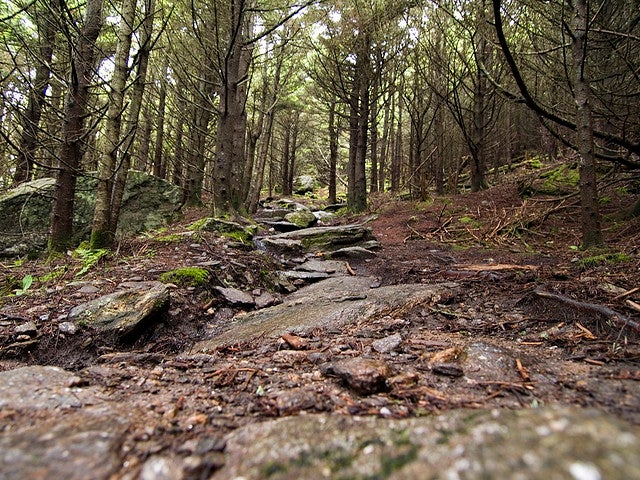
It’s not the first time I’ve walked in woods
with my son, now thirty two, who squats
like a frog about to hop off the log’s edge.
It’s not the first time he’s pointed out
the black-winged damselfly,
not the first time I’ve leapt back to his childhood:
the schoolyards where we hunted for bugs
near dusk, the trails in deep woods,
the swamps we slogged through,
the creek near our old house, both of us bare-footed—
I was too young, in my early twenties.
We were both carrying nets, walking past snakes,
minnows, blue-gills, in hopes of catching
crawfish, or whatever he was looking for
back then. I was looking for where we’d turn
around, go back home. Today the sky
tastes gray, like clouds, and the creek water
protects these fallen trees from the heavy winds
that have come with the rain this year.
I push through spider webs, my dog’s leash,
and my wet dog jingles as she catches
up with us after stopping to smell something
I cannot. Here, at this point, the creek takes
a sharp turn, and muscle shells along the bed—
some black, some silver, some white—
catch my son’s fingers and even here,
at the creek bed, I can’t quite understand
his explanation of how they got here. I’m too busy
thinking about whether or not he’ll be here
still next year—the taste of this world too much
for his fragile mind. He is too old for the silliness
of cradling him in my arms.
We walk again, and jump over trees
that have fallen across the trail, we ignore
the log across the creek where I once fell and broke
my wrist, called my son to rescue me. The muck
—from days of rain and the many bicyclists
who pass us in quick wind—reminds me
that I’m in too deep again, too close
to my son’s explanations of fungus, how it lives
and grows in a world that does not like to see
defects or imperfection. My son is now farther
up the trail where the trees refuse
to keep standing,
but here we are, near dusk.



